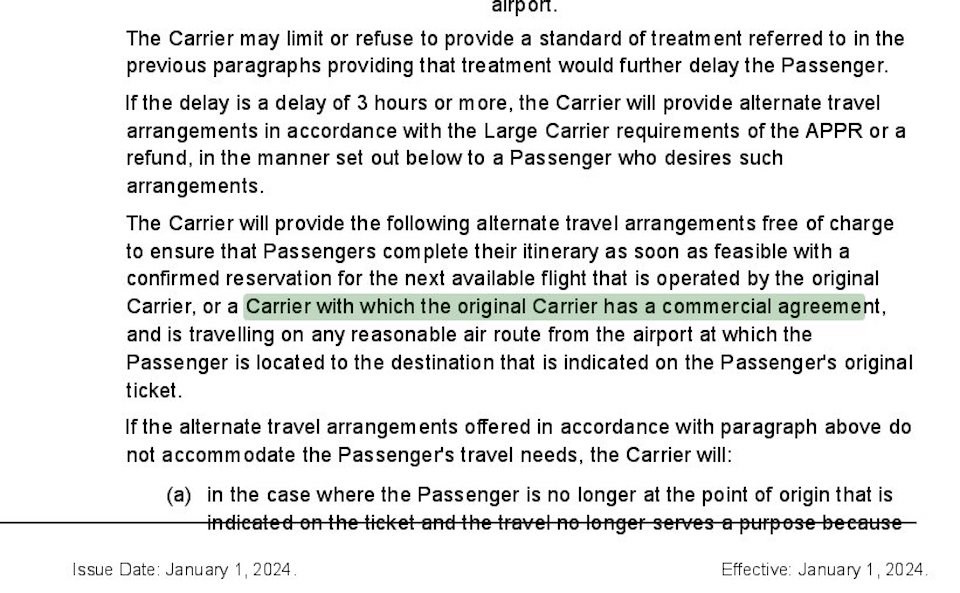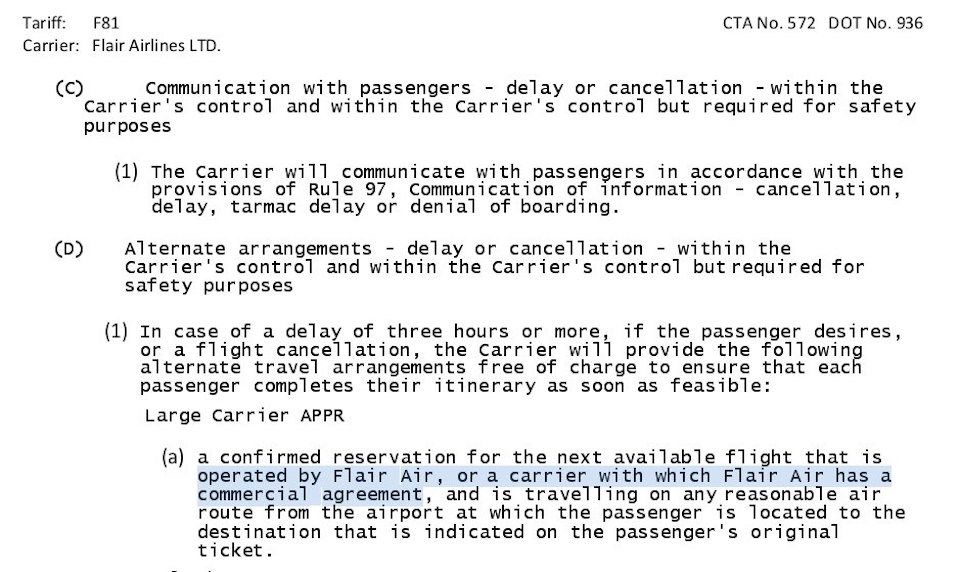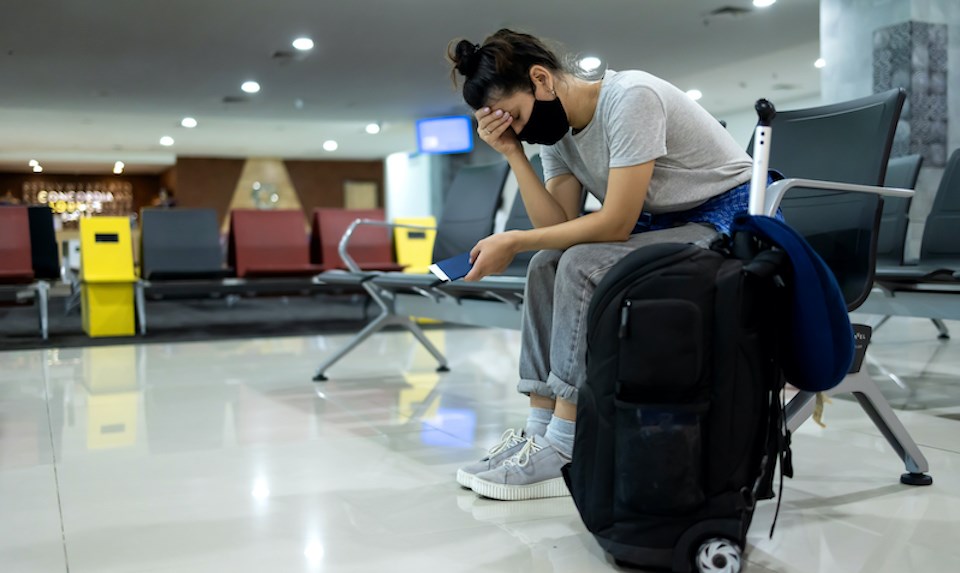Flair Airlines now qualifies as a "large carrier" in Canada -- but the recourse it provides customers to re-book flights on its website doesn't match the official rules.
The ultra-low-cost carrier transported over over the last two years, allowing it to meet Canada's criteria of a "large carrier" instead of a "small carrier," according to the definition in the Air Passenger Protection Regulations (APPR).
Under Canadian law, large airlines must provide passengers with significantly more compensation than small ones. For example, large carriers must provide them with $400 if passengers arrive late at their destination by over three hours but under six, while small ones must pay out $125.
Examples of other large airlines include Air Canada (including Jazz and Rouge), WestJet, Sunwing Airlines, and Air Transat.
Large carriers are also responsible for providing travellers with more recourse for getting to their destination if their original flight is delayed or cancelled.
While a small airline must re-book travellers on its next available flight or one with an airline with which they have a commercial agreement, a large airline must take an extra step.
If an airline doesn't have a flight departing within nine hours -- or one with another carrier on its network -- it must book the customer a ticket operated by any airline, departing as soon as possible.
Flair Airlines updates website to include "large carrier" status
Gabor Lukas, president and founder of the Air Passenger Rights group, said to state that it was a large carrier but that its "domestic and international tariffs mislead the public and misstates Flair's obligations in the event of flight disruptions -- it reads as if Flair was still a small carrier, while the tariff clearly states that they are large."
In particular, the airline did not state that it would re-book customers on another airline if one of its flights wasn't available.
"A tariff is the contract between an air carrier and its passengers," defines the Canadian Transportation Agency (CTA). "It covers the passengers' rights and obligations, as well as the air carrier's rights and its responsibilities towards the passenger."
"Flair Airlines is required to incorporate into its tariff provisions of the APPR," Lukas told V.I.A. "Flair is obligated to apply the passenger protection rules for large airlines for all flights it has operated on or after Jan. 1."


Flair Airlines weighs in on tariff communication
Flair Airlines Spokesperson Gabrielle Poirier said Flair has been operating as a large airline since Jan. 1, 2024, and has adhered to "increased APPR compensation standards" and offered passengers the option to re-book alternative carriers during flight disruptions.
"We appreciate your observation, and we acknowledge the need for clearer communication in our tariff. Today, we submitted a revised tariff to the CTA to ensure greater clarity on our commitment to rebook passengers on alternative carriers," she told V.I.A.
CTA spokesperson Jadrino Huot told V.I.A. that passengers who feel that Flair has not met the obligations set for large airlines under the APPR on or since January 1, should first submit their claim to the airline before appealing to the agency.
"If they are dissatisfied with the airline's answer or if it didn't provide a response within 30 days, they can with the Agency. Each complaint will be reviewed based on the information received from the passengers and the airline to assess if the latter met its obligations set under the APPR," he said.
Large airlines must re-book a customer on the next available flight within nine hours of departure time, or on a flight of an airline with which they have a commercial agreement.
If the airline cannot re-book its customer within nine hours, it must re-book them on a flight, as soon as possible, on a flight operated by any airline. The new flight:
- must take any reasonable route out of the same airport to the traveller's destination, which may mean the airline buys a ticket from a competing airline, and
- the flight must depart within 48 hours of the original flight's departure time
Flair Airlines owes millions in unpaid taxes
Flair Airlines owes the federal government $67.2 million in unpaid taxes, court documents show, prompting the Canada Revenue Agency (CRA) to obtain an order for the seizure and sale of the carrier's property.
The revenue agency said it cannot comment on specific cases for confidentiality reasons, but that it looks to make arrangements with companies "based on their ability to pay" before it takes further steps to recover the money.
"As a last resort, we may take additional legal collection actions, such as seizing property or assets to protect the interests of the Crown," the CRA told V.I.A.
The order marks the latest chapter in a multi-year struggle to stay solvent and within regulatory lines, as the airline repeatedly crossed paths with the courts.
In April 2022, news broke that the airline may have been forced to cease its operations because it did not meet the conditions to qualify as "Canadian-owned" — at least 51 per cent of a company's voting interests must be owned and controlled by Canadians and no more than 25 per cent of the voting interests may be by any single non-Canadian entity or individual. The CTA later
Numerous passengers have also raised concerns about Vancouver flight disruptions and cancellations, with some left or needing to .
In December 2023, the ultra-low-cost carrier announced a new feature that will offer travellers protection when faced with flight disruptions. However, they must purchase the "" when they buy their ticket to receive the benefit.
With files from the Canadian Press.



